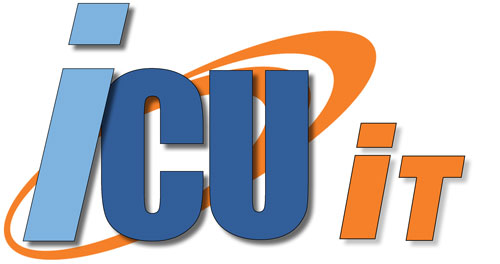“Stay hungry, stay foolish,” is what Apple founder Steve Jobs told Stanford University students in an oft-quoted commencement address. Though he never really explained what he meant, much has been written in the way of commentary about that piece of advice.
It is most often taken to mean that Jobs was advising passion and commitment as the wellspring of success for entrepreneurship. Those qualities, combined with a penchant for constant innovation and an unwavering dedication to a defined goal, summarise Apple’s path to success. Jobs’ ability to focus on the end goal and to remain innovative is legendary.
Many other business experts have advised entrepreneurs to adopt the same precepts. The advice is also valid for firms seeking increased productivity. Encouraging ingenuity and goal-oriented behaviour among employees is of benefit for companies of all sizes.
There are other factors, of course, but passion and single-mindedness are qualities that can make work “fun” and worthwhile even when it is difficult. Losing sight of the ultimate goal, or worse, not defining that goal at all, and letting the pursuit become drudgery are akin to stripping the soul from a business. When that happens, usually the company’s demise is not far behind. When there is no zeal, there is a corresponding lack of achievement. It is a basic principle.
First Principles
Co-founders Seth Goldman and Barry Nalebuff of Honest Tea, a bottled drink company they started in the late 1990s, speak of the importance of perseverance and creative problem-solving, as well as the critical need to have a mission-driven goal, in an insightful book entitled “Mission in a Bottle.” Their advice also includes the following:
- Follow Your Heart
- Stand out
- Chart a Course
- Keep Innovating
- Become Inventive
They give additional advice, and it all has to do with believing in yourself and your mission, keeping sight of the goal, and being as creative as necessary to overcome obstacles.
Boulders in Your Path
Cisco, the worldwide networking giant, lists 10 ways of making your business more efficient. They all involve networking and information, and the point is to simplify procedures in order to boost productivity. Laurie McCabe, vice president of small and medium business insights for AMI Partners, a research firm, maintains that young and small businesses most need to take this advice to heart because they don’t have the resources that global giants have.
At the top of the list is the need for a secure, consistent and reliable means of access to information. Secondly, employees must have access to that information at all times, and from anywhere they happen to be. Ease of communication and associated time-saving efficiencies are also noted. Video-conferencing is referenced as a cost-reducing means of ensuring collaboration; mobile communication capabilities are vital because they allow easy monitoring and response through phone calls, email, voicemail and the ability to retrieve other data.
By employing the suggested strategies, business firms can sidestep many of the pebbles in the path to success, and eliminate the boulders completely.
Assess Your Current Situation
When attempting to streamline business operations, business consultants recommend that you begin “where you are.” If you know what problems exist, in terms of productivity and time management, begin to develop alternative practices to solve those problems. Don’t just agonise about what is wrong, advises one expert.
“Step away from judgement,” notes Susan Baracini-Moe, and “Make the decision to succeed.” That harks back to the basic advice given by successful business leaders. If you keep your eyes on the goal, and implement strategies wisely to help achieve that goal, you are on the right road.
Another effective means of creating a positive atmosphere, if you have employees, is to involve them in the change. Ask them what they require to do a better job. Listen to the answers, and act on them if they are reasonable. Never assume that your employees won’t help achieve success. In fact, if they can assume “ownership” of the goal, you will have a happier, more productive group. Remain innovative, and be willing to employ new strategies, no matter whose ideas they are.
An Investment in Time
Often the “time gobblers” are those tasks that you don’t do well. One way to increase personal productivity, then, is to give those tasks to someone else. That might be termed outsourcing in its simplest form. If you apply the same criteria to assess every aspect of your business, you will make great strides toward increasing productivity. Chances are you will have a more cohesive, more determined team, as well.
Remember that basic entrepreneur’s rule: “Love what you do.” Redefine certain job responsibilities, eliminate or outsource other tasks, and carefully survey all aspects of your company operation until you find the formula that works for you. Assign specific duties, focus on strengths and minimise weakness. In a small organisation, rewriting job descriptions can be of great benefit in moving up the productivity scale.
Outsourcing your network management and is often an effective way to manage resources. This is something that we do for businesses on a daily basis and what we’ve found is that businesses prefer to use us as their in house IT department rather than employing their own IT staff. Ultimately it’s more cost effective and comes with a lot less hassle.
Embrace Some Down Time
This has been termed the information age, and it is accepted that being “plugged in” and available at all times is the way modern business is transacted. That does not mean, though, that you or your employees must be constantly on duty. In fact, increasingly, professional organisers recommend “unplugging” occasionally, and scheduling daily “disconnect” time in order to maintain peak efficiency and productivity.
The new consensus is that managing the tools and the technology is an important skill to learn and to practice. As effective as social networking and online marketing can be for a company, it can also lead to frustration, inefficient time management and a drain on resources and energy. Finding the balance is imperative.
Further reading
It’s important to keep things fresh and gain different perspectives and see how other people do this, to help you I’ve put together a few helpful resources from other great sites on the web that will help you keep your productivity and your businesses productivity as high as possible.
- 6 Ways For Your Small Business To Increase Productivity
- More productive alone, more innovative together
- Beating the Top 4 Productivity Zappers
- 6 Team Building Exercises That Improve Productivity
Remember: Business Is Not Life
Finally, remember that as important as business success is, it does not constitute the whole of existence. Seth Goldman’s final piece of advice is: “Gain Levity.”
“Take care of your personal, family and spiritual health,” he says. “If you aren’t laughing or smiling on a regular basis, recalibrate.”
That may be one of the reasons many large companies undertake coordinated community service projects, or participate in company-sponsored sports teams and off-duty social events. It is a way to foster relationships that are important. By so doing, those firms acknowledge that success in business only contributes to success in life. It does not define it.
Again, as Apple’s founder said, “Stay hungry, stay foolish.” Could it be that he, too, was advising business to focus on the fun as well as the profits?

